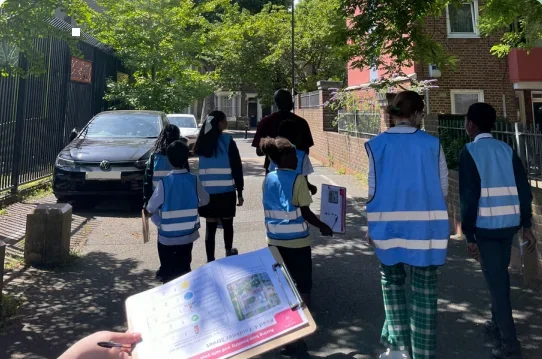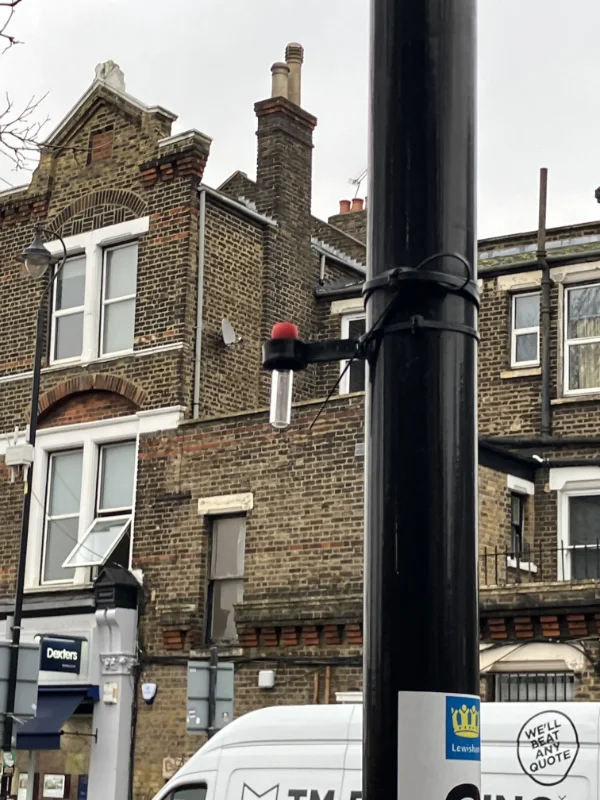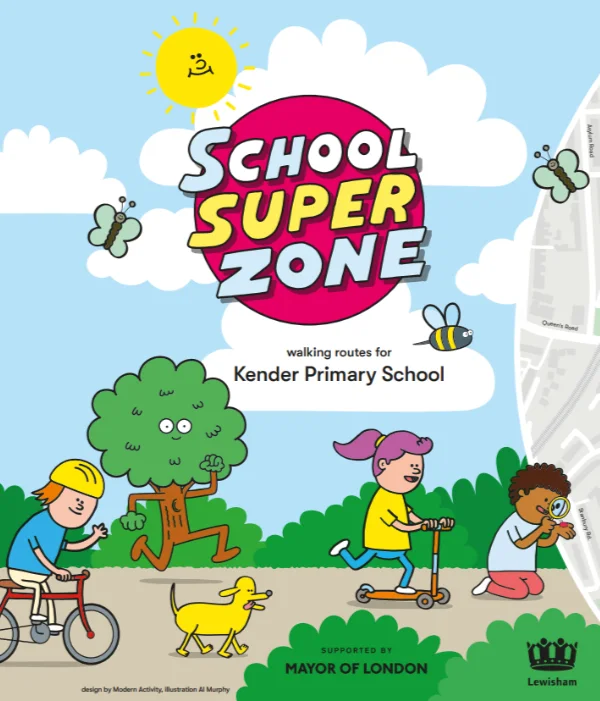What are Lewisham Council doing?
We have been actively working to improve air quality across the borough, implementing innovative projects and securing funding to address air pollution.
What are we doing?
Below is a summary of key initiatives:
School Streets
School Streets are initiatives designed to create safer, healthier, and cleaner environments around schools. By introducing timed traffic restrictions during school drop-off and pick-up times, School Streets limit vehicular traffic outside schools. These measures encourage children and their families to walk, cycle, or scoot to school, reducing reliance on cars and promoting active, sustainable travel.
The Council has significantly expanded its School Streets program, aiming to encourage walking, cycling, and scooting to school by restricting traffic near schools during drop-off and pick-up times.
Currently, 55 School Streets are operational, with Lewisham leading London boroughs with 56.7% of schools covered by traffic-free schemes, compared to the 26% London average (Healthy Streets Scorecard 2025).
Nine new School Streets are proposed over the next three years. These measures enhance road safety, reduce congestion, and improve air quality around schools.
For schools where full traffic restrictions are not feasible due to cost or sensitivity, alternative School Zone approaches are being explored.
In 2024, 1077 children participated in bikeability training, further promoting safe and sustainable travel to school.
The 2024 Climate Action Plan underscores the Council’s ongoing commitment to School Streets as part of its broader environmental and safety goals.
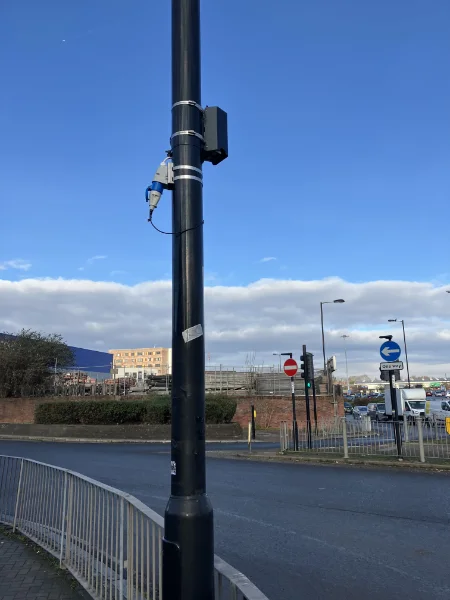
Digital sensors (air nodes)
The Digital Sensors Project will establish a borough-wide network of 100 air quality sensors, enabling real-time monitoring and public access to air pollution data via a free, user-friendly online map.
Benefits:
Residents, visitors, and the community can use this data to make healthier travel choices.
Progress
- The network and public platform are now live.
- The Airscape Air Quality Guidelines more closely relate to the WHO Air Quality Guidelines.
- Alignment: Supports several actions in the Air Quality Action Plan adopted in July 2022.
DEFRA Air Quality Grant
Lewisham secured £248,020 from DEFRA for a four-year project focused on reducing pollution and raising awareness.
Key Objectives:
- Monitoring NO₂ and PM levels near schools and solid-fuel burning areas.
- Launching a public website and social media channels to share real-time air quality data and educational content.
- Providing indoor air pollution guidance and recommendations for the community.
- Raising awareness and encouraging behaviour change through tailored messaging.
Progress:
- Work has begun with Ricardo, including updates to the council’s website.
- Six small automatic sensors have been deployed.
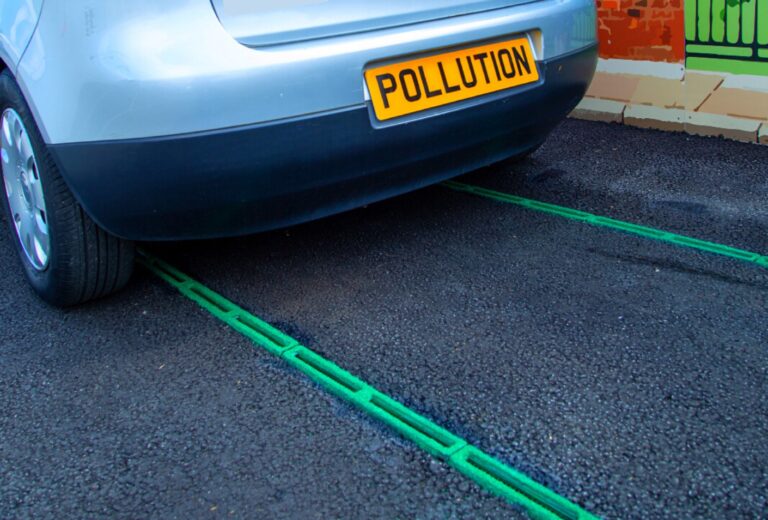
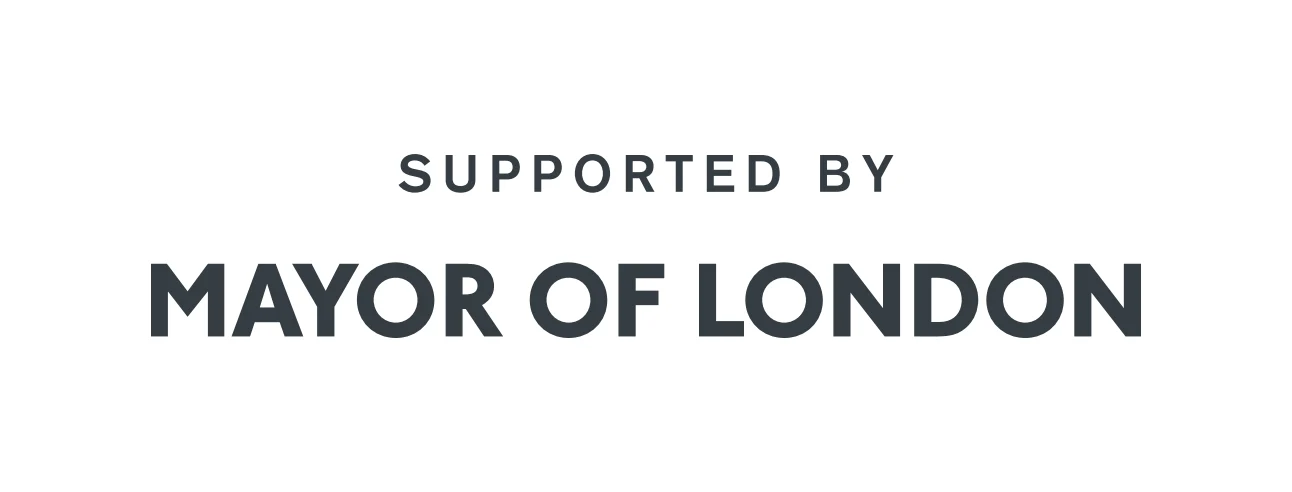
Roadvent Project
This initiative, funded by the Mayor’s Air Quality Fund and Lewisham’s Transport Department, uses innovative Roadvent technology to filter harmful pollutants such as NOx and PM near traffic-heavy areas.
Site Selection:
Baring Primary School was chosen due to its proximity to high-traffic areas and air quality sensitivity.
Progress:
- STAT and GPR surveys completed; awaiting results to determine cabinet placement and planning applications.
- Baseline monitoring underway with diffusion tubes and air nodes.
- Roadvent system ordered and in preparation for installation.
Superzone initiative
A £30,000 Superzone grant was awarded to address poor air quality, child obesity, and deprivation in New Cross Gate, focusing on Kender and Edmund Waller Primary Schools.
Key achievements:
- Walking Routes & Maps – Designed and produced for both schools, with banners now displayed at each location to encourage active travel.
- Active Travel & Air Quality Planners (2024/25) – Developed to help schools sustain project benefits beyond the funding period.
- Educational Resources & Games – Created to engage students, including:
- Engine Idling Group Debate
- Active Travel Bingo (Pollution Solutions Bingo)
- Air Pollution Sorting Game
- Snakes and Ladders Game
- Stakeholder Workshop Case Study – Capturing insights from a collaborative event held at Edmund Waller Primary School.
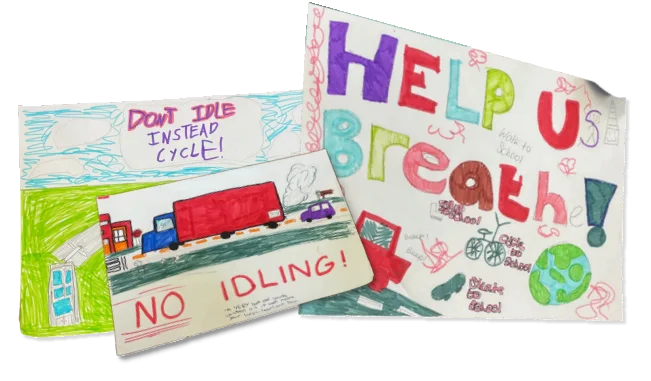
Edmund Waller students' posters from their workshops
Hosted Clean Air Day events featuring air quality workshops and anti-idling campaigns.
Developed clean air maps with walking routes, distributed banners, and leaflets to the schools.
Impact:
Successfully engaged the community, educated students, and improved local air quality.
